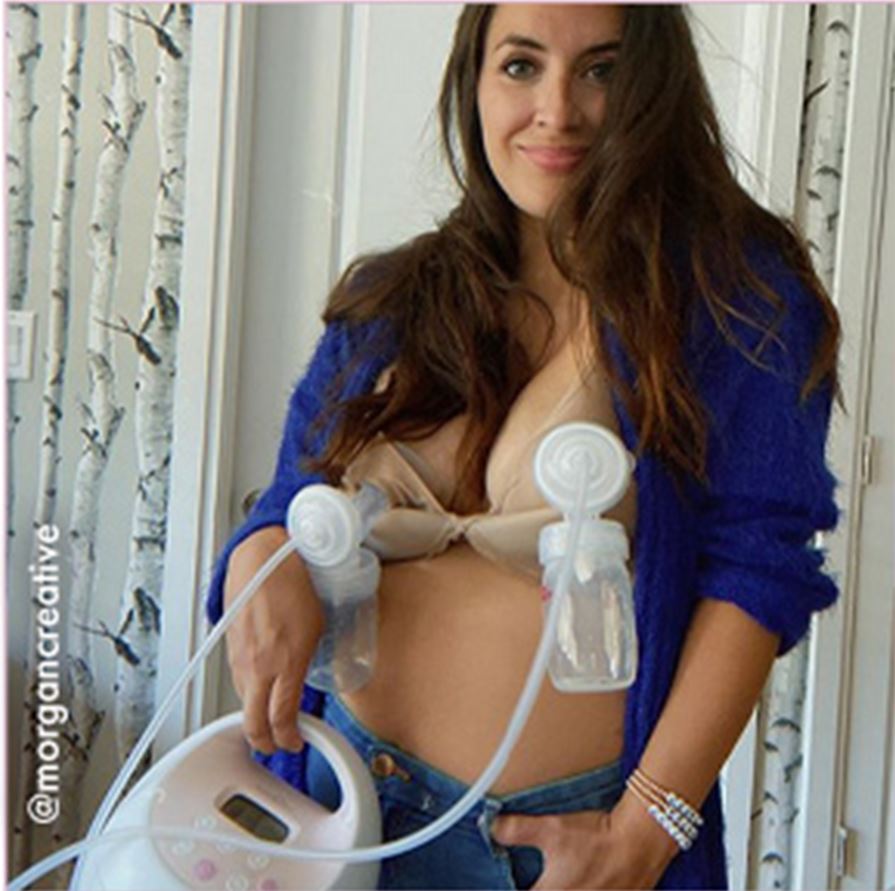Guest Editor Jennifer Ritchie, IBCLC, RLC & Author of The Smart Parents Guide to Breastfeeding
New Mommy Struggles: What You Really Need to Know About Feeding Your Baby
I always thought loving too much was my biggest weakness because opening your heart leaves you vulnerable and weak. After spending 12 years working with babies, you quickly realize that although an infant is vulnerable, they are incredibly powerful. My name is Jennifer Ritchie and I am an Internationally Board Certified Lactation Consultant, Baby Care Expert, and Author of the book The Smart Parents Guide to Breastfeeding.
A human baby’s brain doubles in size in the first year, growing to about 80% of an adult’s size by age three. Nutrition during the first 1,000 days can have a major impact on a child's ability to grow, learn, rise out of poverty, and shape long-term health, stability, and prosperity. The brain is the command center of the human body and the American Academy of Pediatrics has joined the Thousand Days Campaign to ensure children get the best possible start in life.
How you feed your baby will be the first decision you make as a parent, and it is one of the most important decisions that you make. There is more to breastfeeding than just feeding your baby, and there are way more benefits of breastfeeding than just the act of giving a baby breastmilk. Having a baby is hard, so what is the most important? If you are pregnant, it’s focusing on the first two weeks after delivery. If you are already giving your baby breastmilk, the most important thing is focusing on getting your baby 5cc’s (1 teaspoon) of breastmilk each day as long as you possibly can.
My goal is to help you get past this very important time with ease, focus on what’s important long-term, and make decisions that work best for you and your family.
Why are the first two weeks so important when it comes to breastfeeding? In the first two weeks, your baby will lose weight, gain weight, you’ll go from having practically no milk, to having a ton of milk, and this is when you establish the prolactin receptor sites in your breasts. Most breastfeeding problems occur in the first two weeks of a child’s life, and the reality is this is when most parents throw in the towel. This can lead to guilt, regret, and anxiety. My goal is to help you get past this very important time with ease, focus on what’s important long-term, and make decisions that work best for you and your family.
Why are the first two weeks so important? Your brain controls how much milk you make, and you get prolactin surges when the baby is on the breast, not with a pump. The most important thing to remember is: if you don’t put the baby on the breast in the first two weeks, you may have a hard time boosting your milk supply in the future. If you can make it past the first two weeks of breastfeeding, you will establish your milk supply, protect your baby with the antibodies they desperately need, and you will have a very good chance to be successful at breastfeeding for as long as you want to. Just picture if 10 of us have cell phones and there are only four plugs. Six of those cell phones are going to die and that’s exactly what happens with prolactin receptor sites; if they don’t get set up in the first two weeks, that connection is never established.
Each drop of breastmilk contains 1 million white blood cells.
Why do you want to breastfeed or give your baby breastmilk? Each drop of breastmilk contains 1 million white blood cells. These are the cells that KILL bacteria, fight infection, fight disease, and destroy old or damaged cells in the body. Not only that, the breastmilk contains antibodies that bind to microorganisms and keep them away from the body’s tissues. The main immune factor at work here is a substance called secretory immunoglobulin A (IgA) that repels invading germs by forming a protective layer on the mucous membranes in your baby’s intestines, nose, and throat. When an infant is exposed to a germ, the mother is often exposed to the same germ. But in the first six to nine months of life, the infant’s ability to make antibodies to fight that germ is limited, so the mother makes these germ fighters for her baby. These antibodies travel to her milk and are delivered to her baby. Even when a baby contracts a germ, say at day care, the baby “exposes” mother’s breasts to that germ through sucking, and within eight hours the breasts are able to make antibodies to that germ and offer them to the baby via the milk. That leads to less meningitis, stomach viruses, ear infections, asthma, juvenile diabetes, sudden infant death syndrome, type 1 and type 2 diabetes, high cholesterol, high blood pressure, Crohn’s disease, ulcerative colitis, inflammatory bowel disease, and even childhood leukemia.
Unfortunately, babies don’t come with instruction manuals, but putting your time, energy and focus on providing the best possible nutrition for your baby the first 1,000 days will help you overcome issues, reduce stress, and give you the confidence that you are doing everything you can to give your baby the best and brightest future.
The Smart Parents Guide to Breastfeeding is available on Kindle, Apple iBooks, and Barnes and Noble for $3.99 and paperback for $11.99
Learn more from Jennifer at: www.smartbabylearning.com






